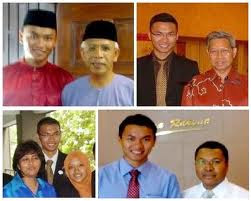
The judiciary in Malaysia
In search of a better way of dispensing justice in Malaysia
Aug 5th 2010 | Kuala Lumpur
THE trial of Anwar Ibrahim, Malaysia’s opposition leader, has proceeded in farcical fits and starts since February. On August 2nd the judge adjourned hearings again, over a defence motion to scrap the whole thing. The case hinges on an accusation of sodomy made by a former male aide to Mr Anwar. The defence says the prosecution has been compromised, after allegations arose of a romantic affair between the accuser and a (female) junior prosecutor in the case. In 1998 Mr Anwar, then deputy prime minister, was tried for a similar offence and spent six years in jail, before his conviction was quashed. He calls this second trial a political conspiracy.
Such drama is largely absent from Malaysia’s sharia courts, which operate in parallel with civil ones and deal mostly with family law for the Muslim majority, annulling marriages and adjudicating custody disputes. But they also dole out punishments for “moral offences”. Muslims caught drinking or philandering face fines or even caning.
Officials are now keen to improve what they call the distorted image of Malaysian justice. Witness, they say, the arrival of two female sharia judges, a first for Malaysia, and a rarity in the Islamic world, who started work on August 2nd, the same day as Mr Anwar’s hearing. Liberals have long complained that such religious courts are biased, with women finding it hard to win a divorce from an absent or abusive husband. Another concern is that courts order insufficient alimony payments and too often favour men in custody cases.
The new judges sit in federal sharia courts in Kuala Lumpur and Putrajaya, an administrative city. Other courts belong to state governments and are under the purview of hereditary rulers, a conservative lot. Federal officials concede that they can only set an example and ask the states to follow suit. Interpretations of Islamic law differ widely between state jurisdictions.
Around 40% of the 1,000 or so lawyers working in Malaysia’s sharia courts are women. The new judges vow to assess all cases on their merits. “What is important is that justice is done, regardless of the gender,” says Surayah Ramlee, a former court research official named to the bench in Putrajaya. At first neither of them will be asked to punish errant Muslims, as moral offences are reserved for higher courts.
Outside Kuala Lumpur’s sharia court, opinions mostly divide along gender lines. Men fret that female judges will be emotional and inflexible, and may favour wives over husbands. Women argue that it is about time that they received a more sympathetic hearing. A female lawyer notes that many judges have no idea of how women manage household budgets and child-rearing. This has made it easier for husbands to weasel out of paying enough support.
Asia
The Economist London
 RSS Feed
RSS Feed Twitter
Twitter



0 comments:
Post a Comment